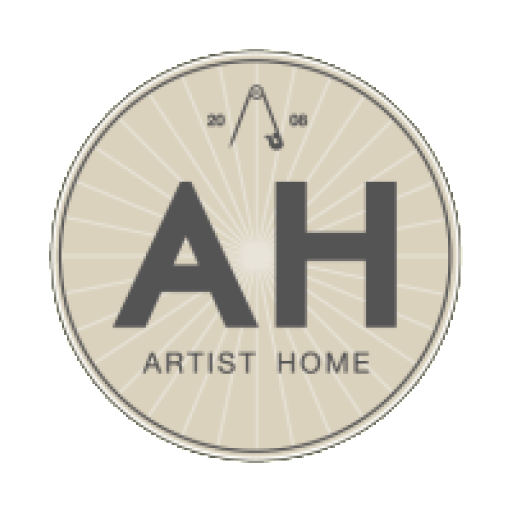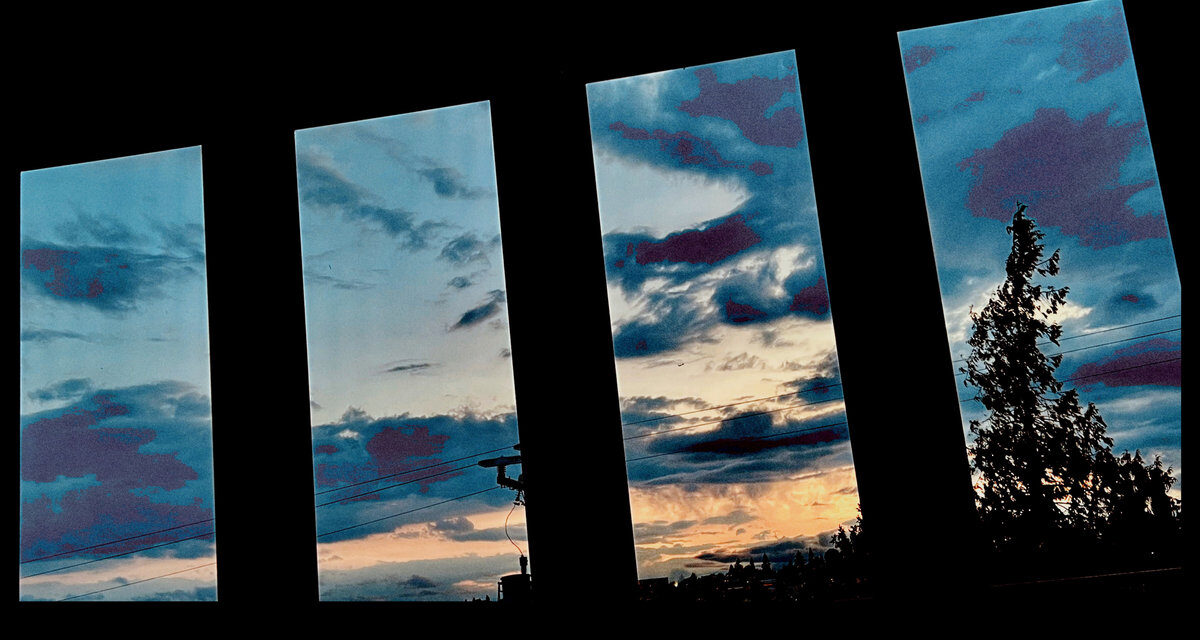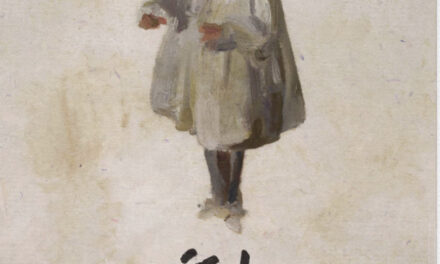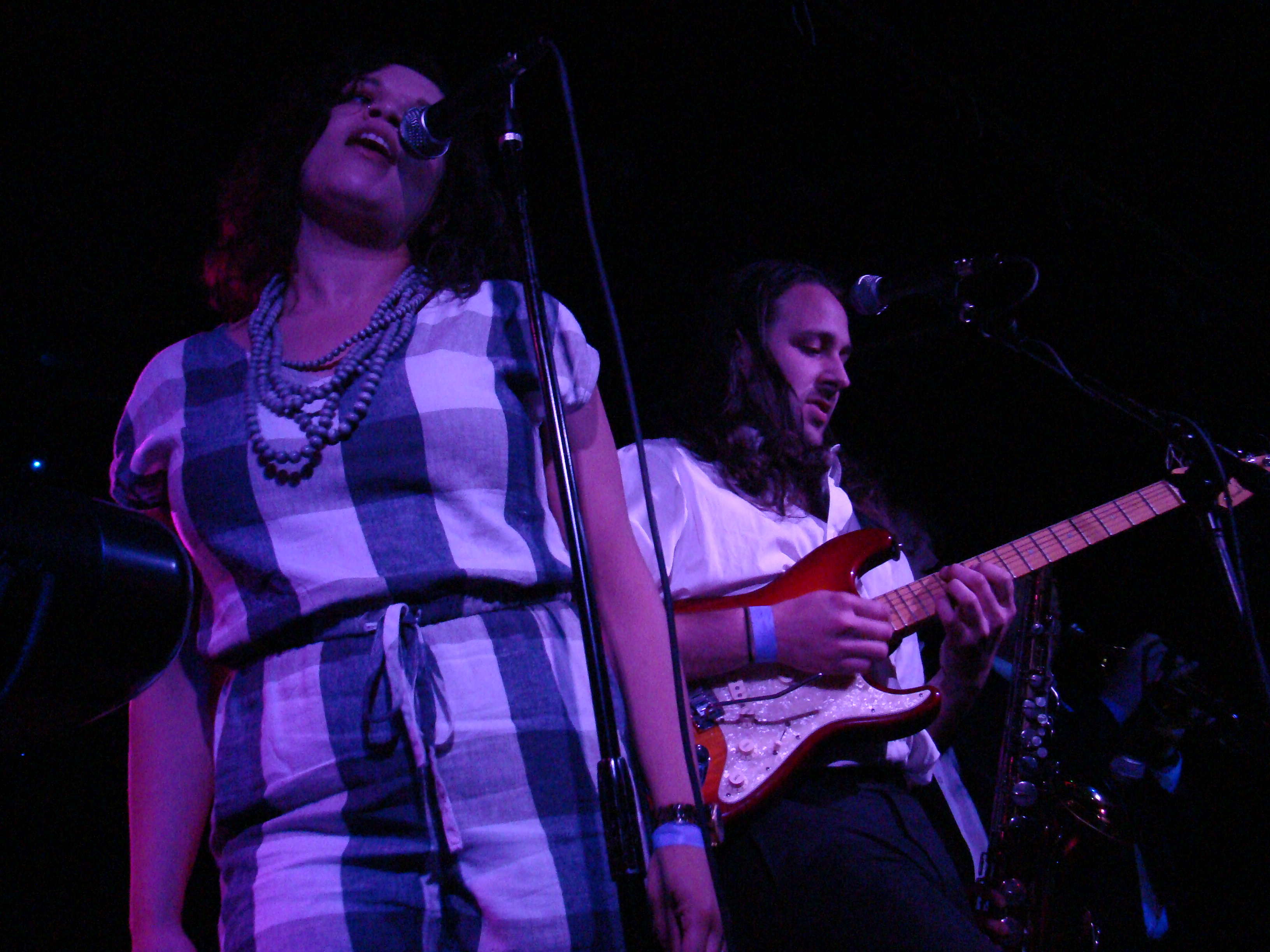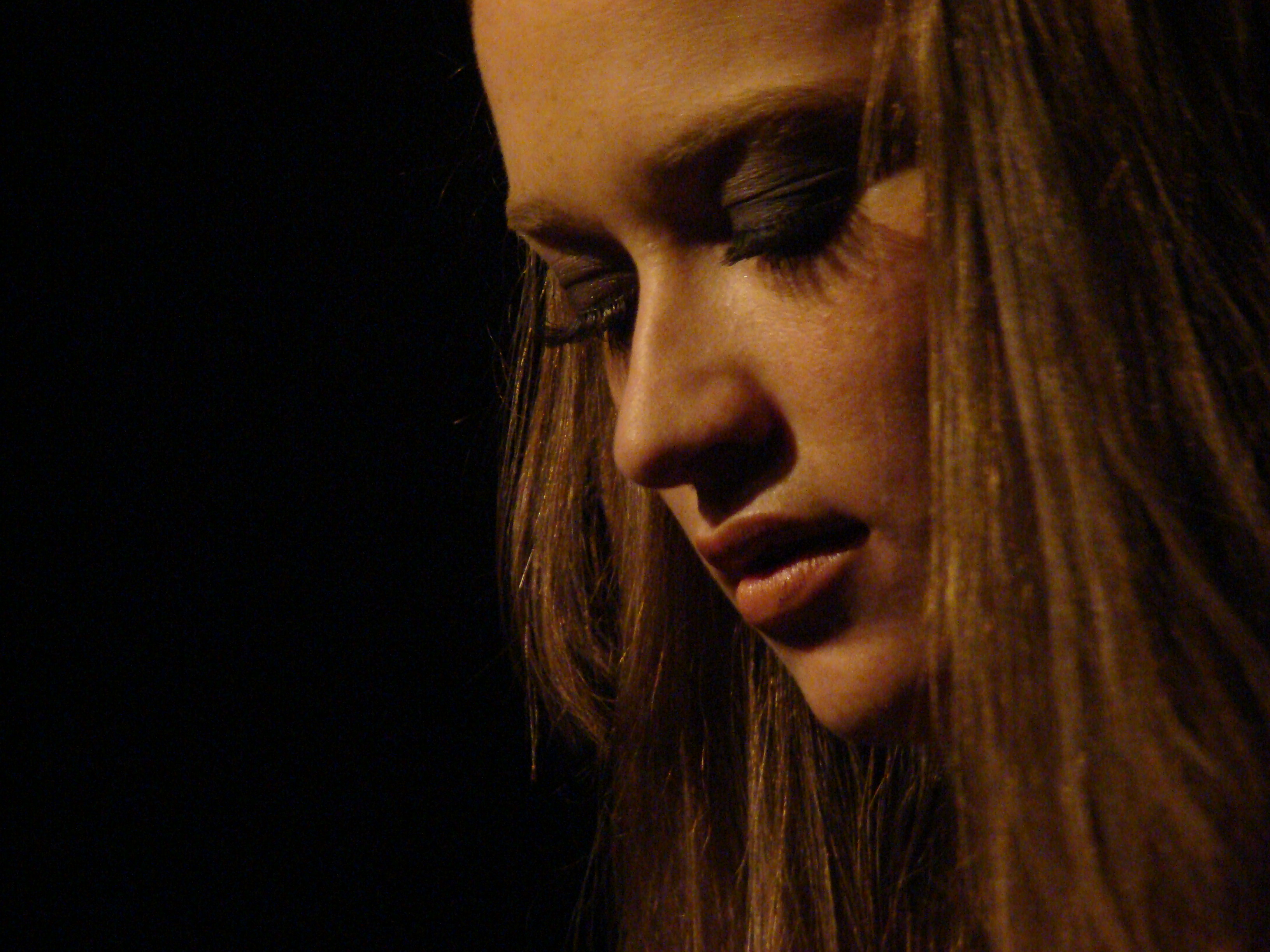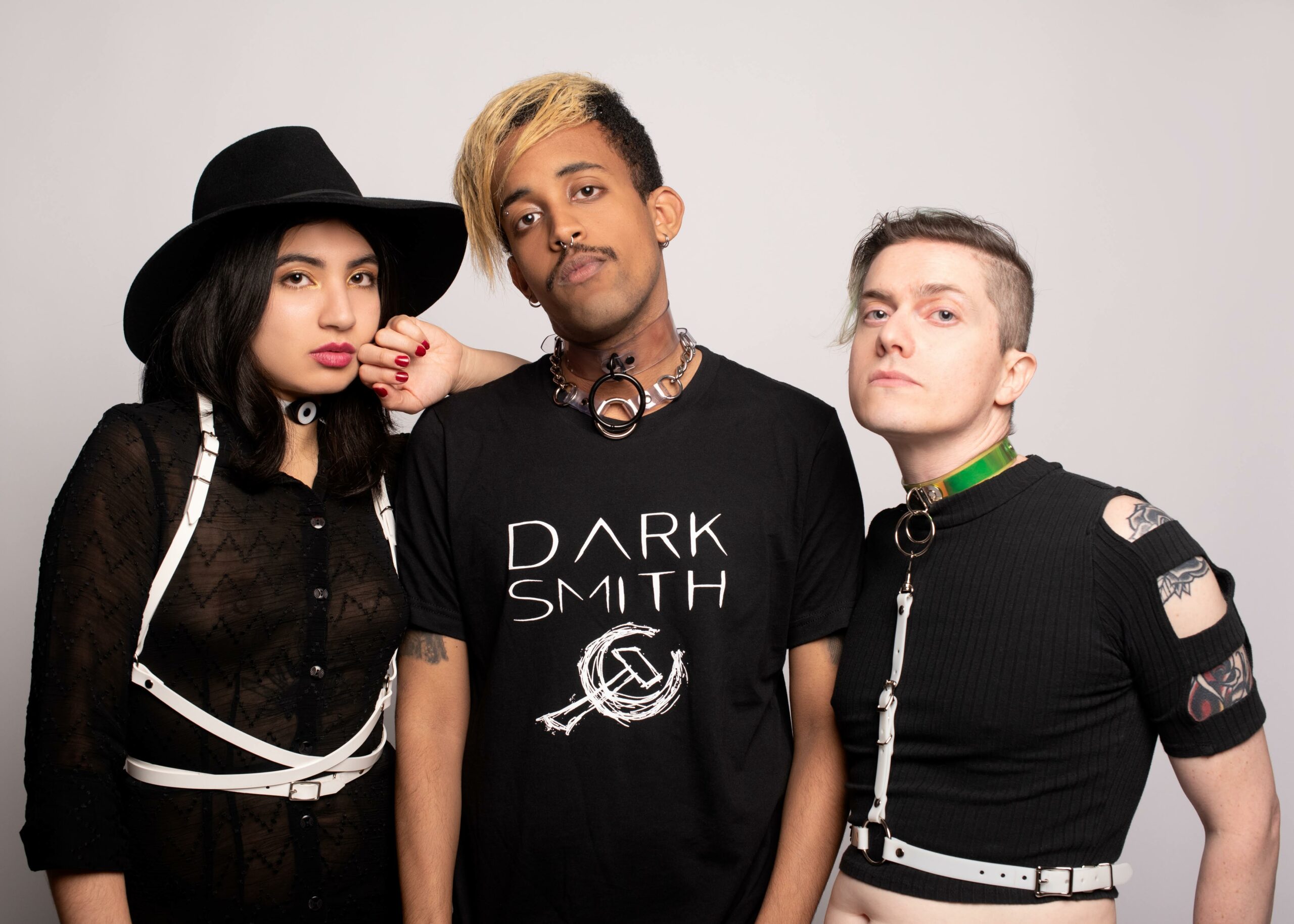As the singer/guitarist for The Trouble Starts and his own solo recordings, Daniel G. Harmann has spent over twenty years making cathartic indie guitar-rock, characterized by sharp guitar hooks and reflective lyrics. But Harmann’s new EP, Unspoken Ghosts, Vol. 1, marks a radical departure for him.
The six mostly instrumental tracks on Unspoken Ghosts, Vol.1 find Harmann’s knack for melodic hooks and atmosphere translating famously to a very different, electronically based sound. Subtle house grooves with a playful, sometimes sensual vibe punctuate the ambient beauty throughout the EP. It’s a smooth-flowing record whose hooks shine brighter with each successive play.
The seeds of the EP were planted when Harmann took 6 successive flights last January, determining that he’d record something on each flight, using his newly-acquired portable Teenage Engineering OP-1. Then, an unexpected injury sidetracked him, even as it gave him an unexpected opportunity to shape his flight recordings into something tangible.
I chatted with Harmann online about his new collection of tunes, that OP-1, and how that injury (and televised baseball) indirectly inspired him.
Your work with The Trouble Starts, and your previous solo work, would not lead one to think you had an affinity for the ambient, electronically-based soundscapes you’ve generated for Unspoken Ghosts, Vol. 1. What’s your relationship with electronic/dance music been like in the past? Do you have any influences/favorite artists working in that arena?
I think I’ve always loved this type of music. It’s funny, I started a Spotify playlist called DGH Instrumentals, and while doing it, I realized that even back as far as 2004, I was putting [some] instrumental, stripped-down type of stuff on each of my records. I’ve always been a fan of Brian Eno, but I’d say over the last ten years I’ve really started listening to more ‘modern classical’/ambient stuff, like Max Richter, Yann Tiersen, Johann Johannssen, etc. I’ve had a few sync licensing opportunities over the years and have always heard from folks that my stuff is ‘cinematic’ – even the vocal stuff. So I’ve always kind of flirted with the genre, but never had the chance to do a super deep dive, until now.
This EP, to a great extent, feels like the chronicle of a love story between you and the Teenage Engineering OP-1.
You know, it’s actually more of a love/hate relationship, haha. Truth be told, I barely understand how the f***ing thing works, which is a pretty common theme with most of the gear I own. I just wanted something that was portable, that had a synth, a drum machine, and that allowed me to record. I got really tired of making beats or using virtual synths within Logic. I like buttons, and I like turning knobs, so the OP-1 was attractive to me. I barely scratch the surface of what the thing can do. But if I want to sit down with the goal of accomplishing something, it’s great for that.
An accident, and the incapacitation that resulted for a month, led you to picking up the tracks you’d recorded on those flights earlier in the year, and actually shaping them into fully-developed songs. If you don’t mind me asking, what happened?
Yeah, no problem. I wish I had a cool story like I got tossed out of a car, or was skydiving or some shit, but I actually just slipped on a mossy step, coming out of a dinner with family. It was kinda rainy, and I put my left foot down, it slipped, and all 275 lbs of me came down on my right foot. I snapped my tibia, fibula, and a bone in my ankle. It was fucked up – like one of those injuries you see on TV where you hafta look away – floppy backwards foot. I know it sounds dramatic, but I actually have some minor PTSD about the moment that it happened.
There’s a very zen quality to Unspoken Ghosts, Vol. 1. I’d imagine mixing and completing these tracks was super-therapeutic.
Thank you so much. And yes, it was. To be honest, it was the only thing I was able to control in my life, during that month. My wife was doing everything for me, and all I could do was lay there and try to get better. So after a few days, I asked her to grab my MIDI keyboard, and I was off to the races. It was a horrible time for me, but in a way, also beautiful because the only thing I had to do was focus on healing, and work on music. It isn’t lost on me how fortunate I was to be able to do that.
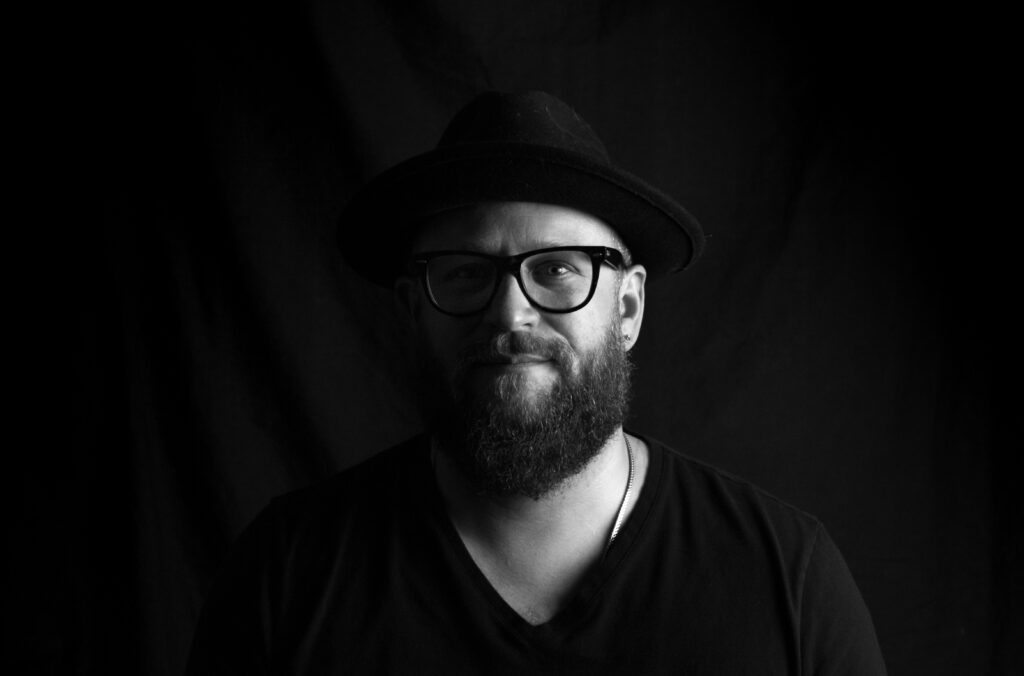
The tracks on the EP are all really concise, in a subgenre that’s known for longer, more elastic run times on songs. Was that concision by design, or just how the tracks evolved?
That’s an interesting question, and I hadn’t really thought about the track lengths that much, I guess. BUT I will say that I’m not a huge fan (Brian Eno excluded), of songs that go much past the five-minute mark. And one thing I find with a lot of music like this, is that there aren’t always definitive ‘parts’. I went into it going, well, I could just map these out and smash all these parts together, and that would be fine, but I also wanted them to be very musical. I think I have always relied on guitar and my voice for melody, and that I have a good sense of melody, and can write some decent ones. I wanted that to come through, but without my voice. So I spent a lot of time writing melodies on the keyboard, and making the songs sing and maybe even have some hooks, but in a non-traditional sense compared to most of my other stuff.
There are baseball references in some of the song titles. Is this entire EP a concept record about America’s Favorite Pastime?
Ha! I wish I were that clever. No, I just watched A LOT of baseball while I was in bed, and that was the time when the Mariners really started turning it around this season. I love baseball, but in the way that a kid loves baseball, I suppose. I like having it on, and I understand what’s going on, but I’m not a deep stats guy. My wife and I talk about this all the time. Having the game on is very nostalgic, like you’re at your grandparents’ house in 1984. And that just feels nice. And so I was in bed, maybe working on music, maybe not, and if the Mariners were playing, the game was on.
Are you back to composing more traditional, guitar-based music yet?
Totally. Guitar is my primary instrument, and my first love, so I’m always playing and writing stuff. I also try to do monthly collaborations with friends and have had an ongoing project with my buddy form the UK, Harry Seaton, that we call Lake Elsewhere. So I’m always playing guitar and singing on that stuff. I think in a weird way, that project helped shape my ambient stuff, because I mix those songs and play a lot of synth stuff on them.
The EP title, of course, alludes to more volumes of this type of ambient, largely instrumental music. I’m assuming you’ll be exploring this style more in the future, or is this just a detour on your creative journey?
Yeah! I actually have a lot of the songs for Vol. 2 already mapped out. It won’t be stuff that started on the OP-1 exclusively, and will also be more guitar-centric, but still instrumental. I have a lot of rad collaborations lined up and tracked for it too, including Cory Wong, Harry Seaton, and The Animals at Night. I really like the songs on Vol. 1 and thought it would be fun to continue the run. My goal is to press vinyl once the next one comes out, that includes both volumes. That’ll be my first vinyl release, and I can’t wait.
Unspoken Ghosts, Vol. 1 is now available and can be purchased here.
